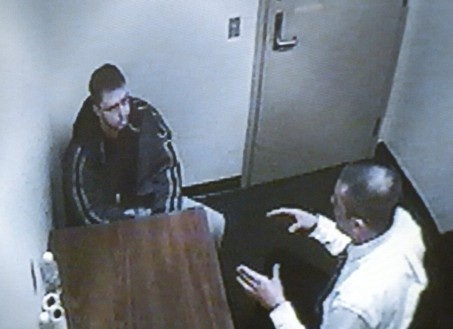
Almost everyone has witnessed an automobile accident. Many, unfortunately, have witnessed a domestic dispute, or even a violent criminal act. Regardless of the nature of the incident, people all respond differently under such circumstances. Even if you were not directly confronted during the incident, you may experience reactions from your exposure to the crime or unfortunate accident. How people react to these events varies from person to person and is affected by individual factors such as how you usually handle stressful situations and what kind of support you have. Many under these circumstances do not wish to answer questions, let alone from an authoritative figure such as a police officer. However, police officers owe a duty to protect society by trying to figure out exactly what happened and in most cases to try and find out who is responsible. However, under such challenging circumstances, just what are you required to answer?
The Fifth Amendment to the Constitution provides protection against self-incrimination. This powerful tool prevents an individual from being a witness against him or herself. If you have just committed a crime and/or believe that law enforcement suspects that you may have, you have the right not to answer questions and instead, to ask for your attorney. However, witnesses, unlike suspects, are treated differently. Witnesses are required to answer questions in judicial or quasi-judicial proceedings such as grand jury or legislative hearings. Although law enforcement cannot legally force you to answer questions at the scene of the incident, they and/or prosecutors can use an instrument called a “subpoena” which legally requires you to appear in court to answer the questions. Once called into court as simply a witness and not a suspect, you are required by law to answer the questions asked unless you reasonably believe that the questions asked may incriminate you in some way.
Typically, people don’t plan on witnessing an accident and/or a crime. However, if you are placed in such a situation and are able to assist law enforcement without fear for your own safety and/or fear that you might be incriminating yourself, you may want to answer questions. Law enforcement is an important part of our society and without the help of citizens during these events too many crimes would go unsolved. However, if at any time during their questioning you feel even the smallest sense of fear that you are being accused of anything do not hesitate to ask for your attorney. This is your constitutional right. Don’t worry about “looking guilty.” Cops are used to it and your invocation of rights cannot be used against you if you’re ultimately charged with a criminal offense. Just one last word of advice; invoking your right to an attorney does prevent police from asking you any more questions, however, it does not prevent you from affirmatively opening your mouth and talking with them. Anything you say after invoking your right to counsel will be considered a waiver of your rights and the police may again start interrogating.
 Florida Criminal Defense Lawyer Blog
Florida Criminal Defense Lawyer Blog

